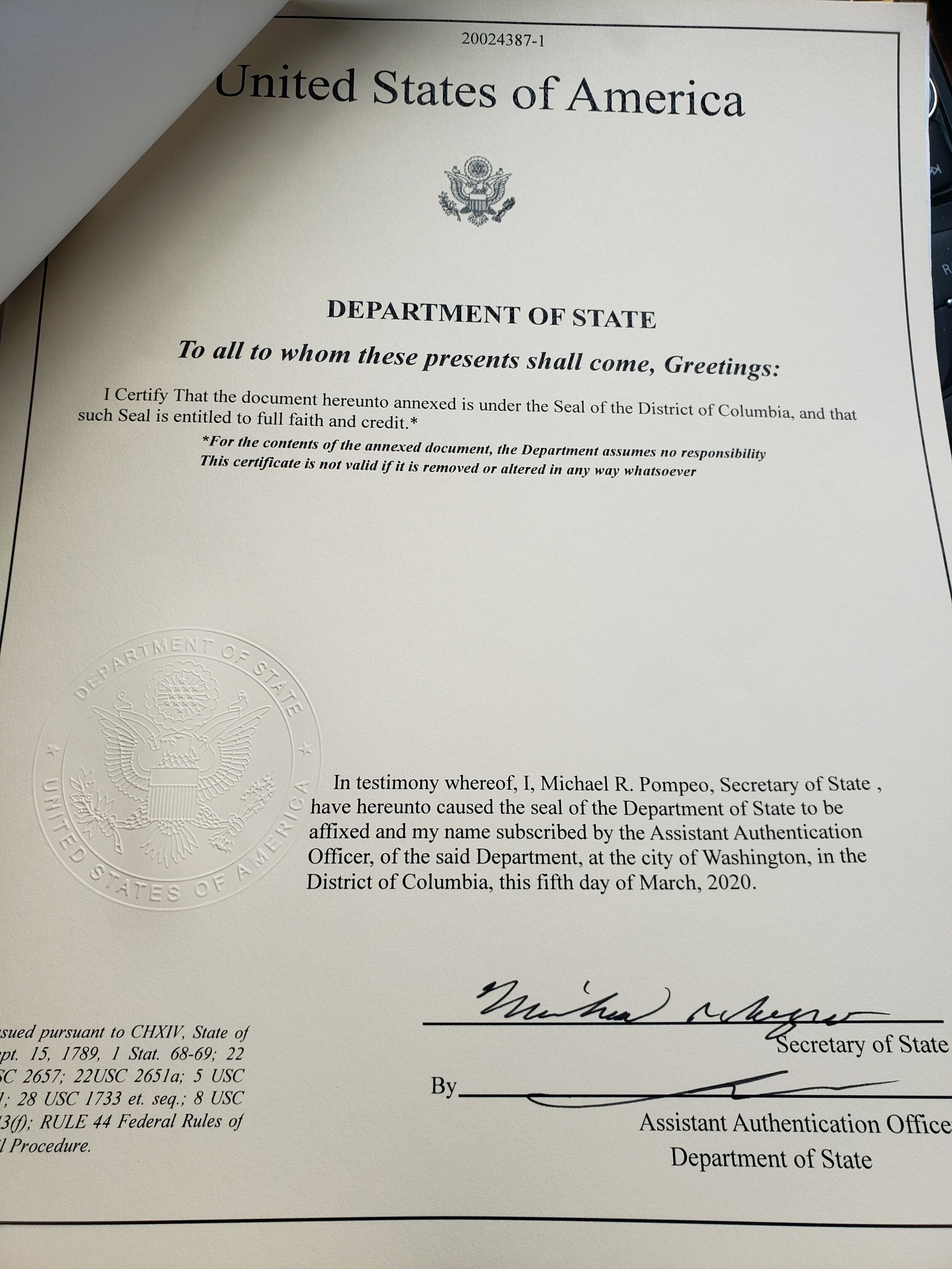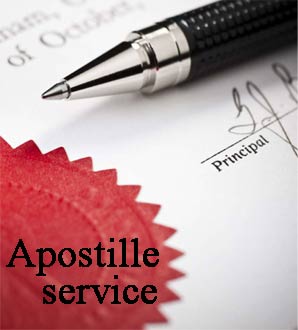Reliable Houston Apostille Services - Have Your Papers Apostilled
Reliable Houston Apostille Services - Have Your Papers Apostilled
Blog Article
Revealing the Critical Function of Apostille in Simplifying International File Recognition Procedures
In the world of international events, the recognition of papers holds vital value. By fastening an apostille to a file, it goes through a streamlined recognition that is acknowledged across various countries, thus easing the problems associated with cross-border record verification.
Recognizing Apostille Basics
In the realm of file recognition for worldwide use, realizing the basic principles of apostille verification is vital. An apostille is a specialized certification that confirms the credibility of a paper for usage in international countries that belong to the Hague Apostille Convention. Recognizing the basics of apostille entails identifying that it does not validate the web content of the record but instead accredits the signature and seal of the releasing authority. This accreditation streamlines the procedure of worldwide record recognition by making sure that the paper will be acknowledged as real in nations that are events to the Apostille Convention.
Apostilles are commonly issued for essential documents such as birth certifications, marital relationship certificates, and academic records. The vital components of an apostille include the name of the country where it was released, the name of the individual signing the document, the capability in which the individual authorized the document, the seal or stamp of the issuing authority, and the day of issuance. By comprehending these basic elements of apostille authentication, companies and people can navigate the complexities of worldwide document validation with self-confidence and performance.
Benefits of Apostille for Recognition

Moreover, the apostille simplifies the confirmation procedure by giving a standardized certification that confirms the credibility of the record, such as birth certifications, marriage licenses, notarized deeds, and scholastic transcripts. This standardized style lowers the danger of being rejected as a result of strangeness with international files, thus enhancing the efficiency of cross-border deals.
Furthermore, the apostille helps in getting rid of the need for multiple layers of verification by government authorities, as the apostille itself represents the record's validity. This not only accelerates the record recognition process however additionally lowers the connected expenses and governmental hurdles, making it a cost-efficient and practical remedy for services and people participating in global tasks.
Streamlining Cross-Border Document Authentication
Streamlining cross-border document authentication, the apostille gets rid of the requirement for extensive and commonly complex validation treatments normally called for when offering papers in foreign nations. By attaching an apostille to a record, the issuing country certifies the credibility of the record, making it easily acceptable in other countries that are component of the Hague Apostille Convention.
Additionally, the apostille system boosts the security and dependability of cross-border file recognition by giving a clear and worldwide approved system for validating the credibility of documents. This simplification of verification refines not only advantages people and businesses looking for to operate internationally yet likewise promotes smoother communication and collaboration in between nations by making certain the integrity of shared documentation.
Significance of Apostille in Legalization

Apostille guarantees that legal papers such as birth certifications, marriage certifications, powers of attorney, and court files are acknowledged and approved in international jurisdictions. The apostille procedure minimizes the administrative difficulties and time-consuming procedures generally linked with record legalization, making global purchases more reliable and legally binding.
Apostille Vs. Typical Recognition Approaches
Contrasting apostille with standard recognition methods reveals distinctive distinctions in the effectiveness and simpleness of paper verification processes for worldwide usage. Apostille, as a structured and standard method developed by the Hague Convention, provides a more straightforward approach to validating documents compared to standard techniques. Traditional validation procedures typically entail numerous steps, including registration, accreditation by government authorities, and consular legalization, which can be cumbersome and lengthy.
Apostille, on the various other hand, streamlines this procedure by accrediting files with a single apostille certification provided by an experienced authority in the nation where the document stems (Houston TX Apostille). This certificate is identified by all participant countries of the Hague Convention, getting rid of the demand for more consular office legalisation. As an outcome, apostille dramatically decreases the time and effort needed for document recognition, making it a favored selection for companies and individuals associated with worldwide purchases
Final Thought
Finally, apostille plays an important duty in streamlining worldwide file validation processes by providing a standard method of verification that is acknowledged across getting involved countries. By improving the legalization procedure, apostille gets rid of the requirement for multiple layers of recognition, reducing time and costs related to cross-border file verification. This efficient system benefits individuals and companies looking for to make use recommended you read of foreign records for lawful objectives, guaranteeing smoother international deals.
By fastening an apostille to a file, it undertakes a simplified recognition that is recognized across numerous nations, hence relieving the burdens associated with cross-border paper verification. Simplifying cross-border document authentication, the apostille removes the requirement for extensive and commonly complicated validation procedures generally called for when presenting files in foreign countries. By affixing an apostille to a paper, the issuing nation certifies his response the authenticity of the paper, making it easily acceptable in various other countries that are part of the Hague Apostille Convention. By fastening an apostille to a record, the releasing country accredits the authenticity of the signature, seal, or stamp on the document, making it legitimate for use in one more participant nation of the Hague Apostille Convention without the need for further legalization.

Report this page